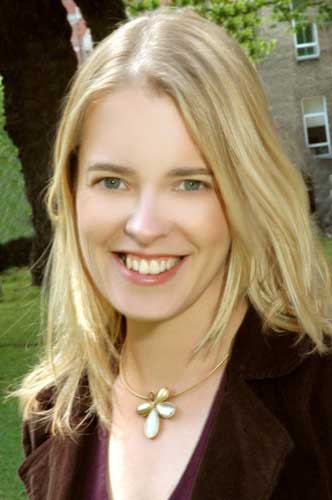Wealth Check: 'I'd like to get my home budget under control'

Sarah Clifford, 30, from Bristol, has concerns about |her household budget. She lives with her husband and 16-month-old daughter and wants a little more breathing space when it comes to everyday costs. “I just want to be able to have some spare money available that I can use for bills, clothes, holidays and even doing nice things,” Sarah says. “I’d really like some advice on how I can manage my household income more efficiently.”
Case notes
Salary: Sarah earns £16,500 a year.
Monthly outgoings: She contributes £1,000 towards food fuel, nursery fees, utilities etc.
Savings: Sarah pays into a Child Trust Fund for her daughter and around £20 into an ISA.
Mortgage: Fixed-rate repayment mortgage at 5.75 per cent interest.
Pension: Sarah contributes around 4 per cent of her income into a final salary pension scheme.
Debts: Sarah has credit card debts.
Three independent financial advisers offer Sarah their help this week: Marc Ruse of Fiducia Wealth Management, Ian Pealin of Evolve Financial Planning and Danny Cox of Hargreaves Lansdown....
Budgeting
The advisers agree that Sarah has done well to spot that she has a potential financial problem.
“The first rule to financial planning is write everything down,” says Marc Ruse. “It’s essential to be as detailed as possible. Don’t just write down a figure for household expenses; separate costs for gas and electricity, food, personal expenses, etc. Once you’ve itemised each area, it will be a lot easier to see where savings can be made.”
Danny Cox suggests categorising each type of payment into essential, important and the luxuries. “Savings can be made by stopping or reducing spending on luxuries and important items. Essential spending can’t be cut out, but the costs could be reduced,” he says. “Price comparison websites can check if there are costs savings to be made on utility bills for example.”
Sarah’s mortgage is fixed for five years and while the interest rate she is paying doesn’t look great at the moment, the penalties for an early exit probably won’t be worth it. Furthermore, when rates increase again, Sarah’s rate will become more reasonable.
Savings & Pension
Sarah’s credit card debts need attention before they become unmanageable. Sarah and her partner haven’t been able to stay debt free since Sarah went part-time to look after her daughter and her income dropped. She could consider using her premium bond savings to pay down her debt, as the interest she pays on the debt is far higher than the returns would be on the bonds.
Then Sarah should concentrate on the monthly payments on her debts, the advisers agree. Usually, savings should be put on hold until all debts are cleared, the advisers warn, but in Sarah’s case there are two exceptions.
“First, the couple should continue their monthly savings into the child trust fund for the daughter,” says Ruse. “Although it detracts from their everyday financial wellbeing, it’s very important to build up a separate nest egg for the next generation.”
Get a free fractional share worth up to £100.
Capital at risk.
Terms and conditions apply.
ADVERTISEMENT
Get a free fractional share worth up to £100.
Capital at risk.
Terms and conditions apply.
ADVERTISEMENT
The couple should also continue saving towards their retirement, particularly Sarah, who has a final salary pension scheme.
“Sarah shouldn’t underestimate the value of her final salary pension scheme,” says Ian Pealin. “It may, in fact, be her greatest financial asset.
Investments
“Sarah’s shareholding in a major bank has taken a massive hit recently,” notes Ruse. “It makes sense to crystallise those losses, cashing the shares in if possible, and using the proceeds to pay off some debt. It could be worth waiting for the values to recover, but she may be waiting a long time.
“In the meantime, Sarah shouldn’t be taking any other risk with her savings and investments. Her priority should be to eliminate her debt and then build up a cash cushion equivalent to around three months salary,” he adds. Then Sarah could consider a regular contribution to a general investment fund, which spreads and minimises risk.
Protection
Sarah has comprehensive protection policies in place, including critical illness and income protection, and an up to date will. “Life insurance isn’t very expensive,” adds Cox. “Sarah should check whether she has any death in service benefits attached to her employment. Life insurance and what happens on death is not a pleasant subject but is very important.”
For a free financial |check-up, write to Wealth Check, The Independent, 191 Marsh Wall, London E14 9RS; or email wealthcheck@|independent.co.uk
Join our commenting forum
Join thought-provoking conversations, follow other Independent readers and see their replies
Comments
Bookmark popover
Removed from bookmarks